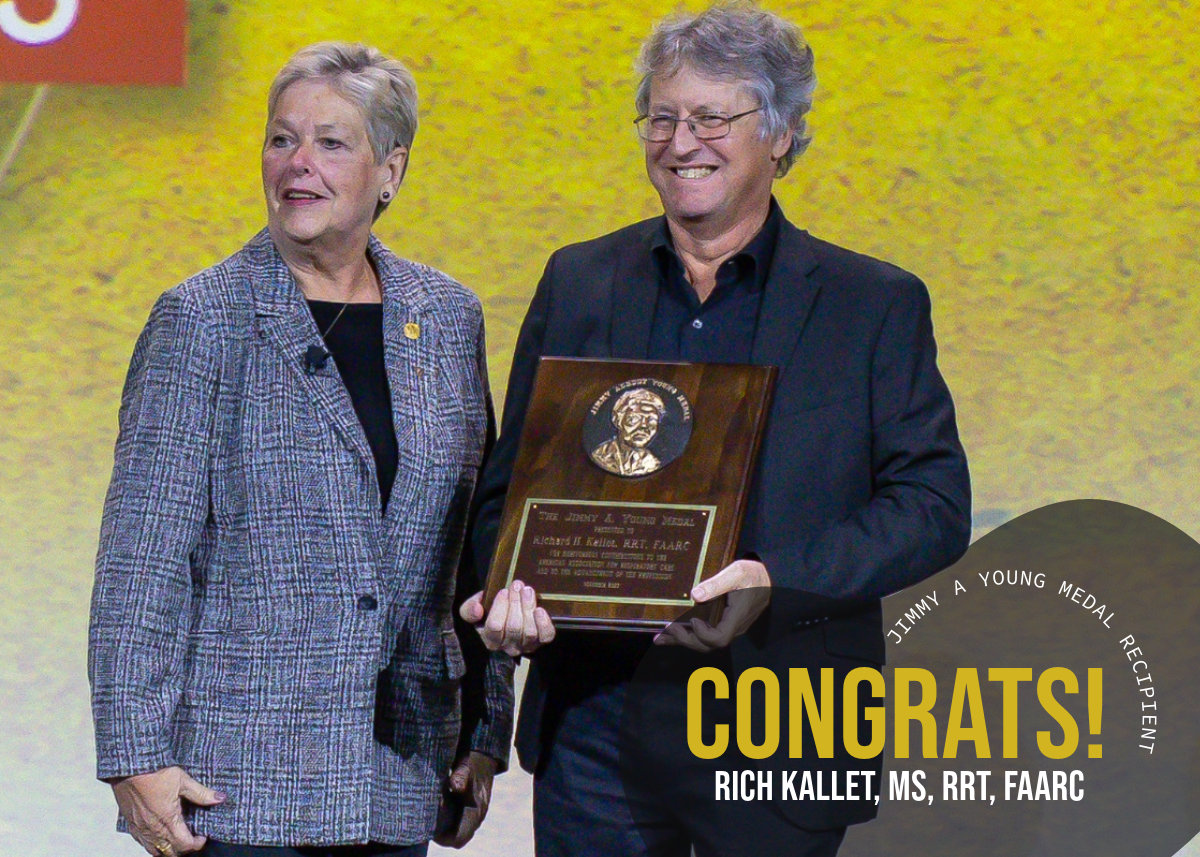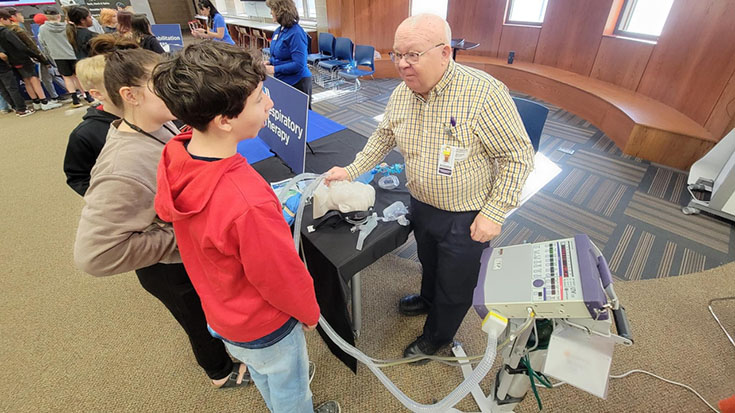
You have a voice and immense experience and expertise to share with colleagues. But are you being heard? Two RTs who feel they have become a respected voice in the larger medical community explain what it takes.
Community service
For Tina Lovings, MHS, RRT, RRT-ACCS, the road to respect has been paved with community involvement.
“I heard about a health fair that was being organized by one of our pulmonologists, so I raised my hand and said, ‘I want to help!’” said Lovings, the respiratory care director at Wake Forest Baptist Health in Winston-Salem, NC.
That first health fair led to many others, and stepping up to assist with these outreach activities added acclaim during performance reviews and opened up a wealth of networking opportunities with other health care providers, who have learned to view her as a valuable member of the health care team.
Lovings believes nearly any RT could earn equally beneficial kudos by doing something along these lines.
“Just look for opportunities where respiratory care-related knowledge could be helpful for the community and ask to be a part of it,” Lovings said.
The key to success lies in doing your homework first.
“Make sure you know what you’re talking about,” emphasizes Lovings. “Stay abreast of emerging technologies, medications, therapies, etcetera,” Lovings said.
She stresses the need to be proactive too.
“We have a lot to offer with our expertise, but it’s our responsibility to share that knowledge,” Lovings said.
In other words, don’t wait to be asked — follow in her footsteps and volunteer.
Hospital-wide opportunities
Reaching outside of the hospital to help people in the community is a great way for RTs to up their respect. But there is plenty to do inside your own facility as well.
Gwen Hesselman, BS, RRT, director of respiratory care services at Mercy Medical Center in Dubuque, IA, is a great example. The entry point for her came when she was a new grad. She volunteered to assist with quality assurance and performance improvement projects within the department and that opened the door to many other opportunities outside the department as well.
“As we all know, performance improvement projects tend to lead to interdisciplinary approaches as well as inter-departmental,” Hesselman said. “This is how I got involved with our Ventilator Associated Pneumonia team when it was developed.”
The team consists of nursing, educators, infection prevention nursing, and members of the critical care team outside of her staff. It has been responsible for developing strategies aimed at reducing the VAP rate in the hospital.
She is also on the hospital’s ancillary team responsible for looking at ways to improve the hospital’s electronic medical record, and has experience working in the rehabilitation/skilled unit, which put her in contact with multiple other members of the health care team and gave her the chance to share patient care techniques and information.
“I eventually represented respiratory in the weekly family conferences as part of discharge planning,” Hesselman said.
Hesselman believes respect is earned, not given, and she advises other therapists to remind themselves that they are experts in their field and can represent the RT point of view better than anyone else. By volunteering to serve on committees outside of the department, they bring that expertise to bear on important projects, and they also learn more about how other disciplines think and work.
“You gain a mutual respect for each other,” Hesselman said.
Keep the conversation going
How have you become a respected voice among your colleagues? Share your tips at AARConnect!
Email newsroom@aarc.org with questions or comments, we’d love to hear from you.

















